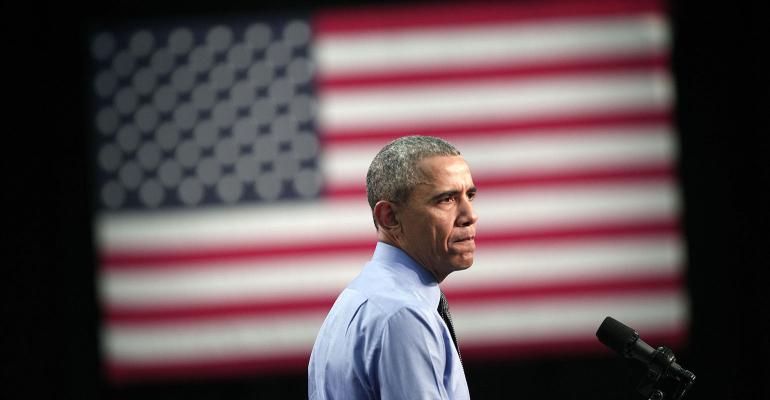The Obama administration is cracking down on international tax evasion.
The White House announced a series of initiatives Thursday night, by which the President will attempt to close some of the more egregious loopholes used by foreigners to hide assets in the U.S. The President will also urge Congress to pass more solid and specific legislation with the same goals.
“The Panama Papers underscore the importance of the efforts the United States has taken domestically, and the efforts we have undertaken with our international partners, to address these shared challenges,” according to a White House statement.
As part of the initiative, the Treasury Department took two major steps. First, it finalized its “customer due diligence rule.” This rule requires financial institutions to discover and verify who actually owns any company that makes use of their services and where the profits from said company are actually going. The idea here is to discourage the abuse of shell company secrecy by increasing transparency and allowing financial institutions and law enforcement to properly identify who is actually behind a company (known as the “beneficial owner”).
The second step the Treasury took is to require certain foreign-owned companies obtain tax identification numbers from the IRS, which would necessitate these companies reporting ownership and transaction information directly to the service. Although it’s still possible for individuals to exploit weak transparency rules offshore, this step looks to close some of the gaps that foreign entities use to conceal their financial activities through anonymous shell companies in the U.S.
Although these measures are fairly limited in scope and may not go far enough to satisfy the most ardent reformers, the Obama Administration looks to be leaving the heavy lifting to Congress. In the announcement, the President, Treasury and Department of Justice called on Congress to:
“1. Pass legislation to require ‘beneficial ownership’ transparency: On behalf of the Administration, the U.S. Department of the Treasury is sending a new legislative proposal to Congress that would require all companies formed in the U.S. report information about their beneficial owners to the Department of the Treasury. That step would make information about beneficial owners readily available to law enforcement.
2. Pass legislation to give law enforcement better anti-corruption tools: We are also seeking legislation to advance our ability to fight corruption both here in the United States and abroad. The new legislative proposals would enhance the ability of our law enforcement officials to obtain information from domestic and foreign banks so they can investigate and prosecute money laundering. This will also allow the Justice Department to prosecute money laundering linked to a broader set of crimes, including ones that involve corrupt public officials.
3. Approve eight tax treaties: Eight tax treaties have been awaiting Senate approval for several years. Without those treaties, U.S. officials don’t have a complete set of tools to fully investigate and crack down on tax evasion by Americans with offshore accounts, including secret Swiss bank accounts.
4. Strengthen existing law to improve reciprocal transparency: In 2010, President Obama signed legislation that established the global standard for financial reporting by requiring foreign financial institutions to automatically report to the IRS information about financial accounts held by U.S. persons. But right now, the U.S. doesn’t provide the same information to its partners under this law that they provide to the United States. Congress can strengthen this law by requiring U.S. financial institutions to provide that information to our partners.”
There is little doubt this package of reforms will get caught up in the political snarl. Nonetheless, these measures represent both the most comprehensive response yet to the Panama Papers revelation and an important official government recognition that the U.S., though it fancies itself as the leader in the fight for international financial transparency, hasn’t quite been holding up its end of the bargain.





